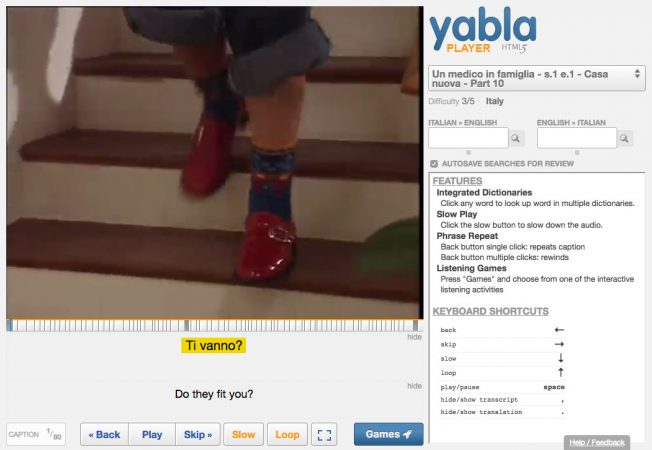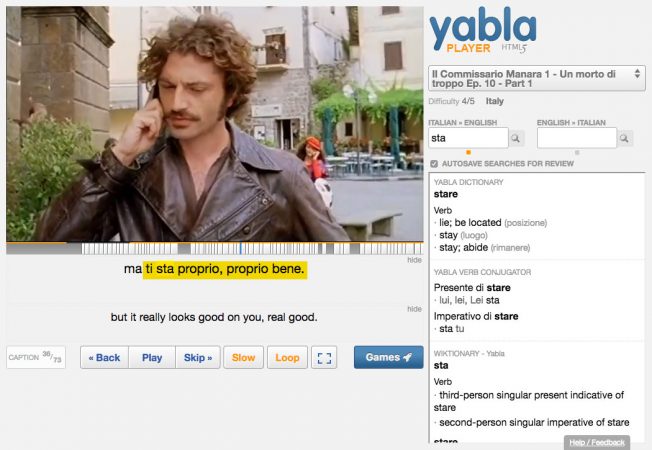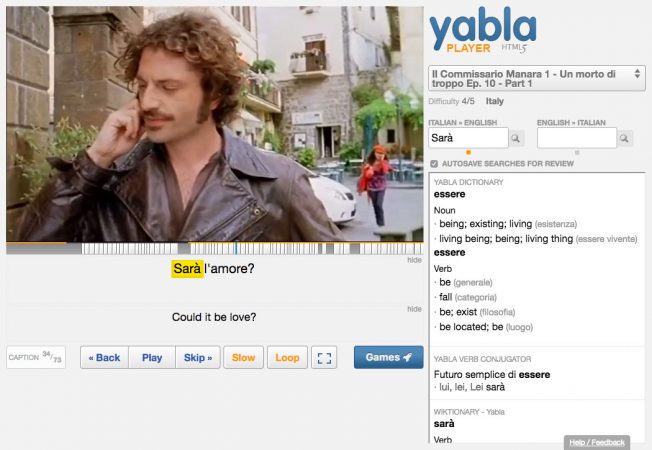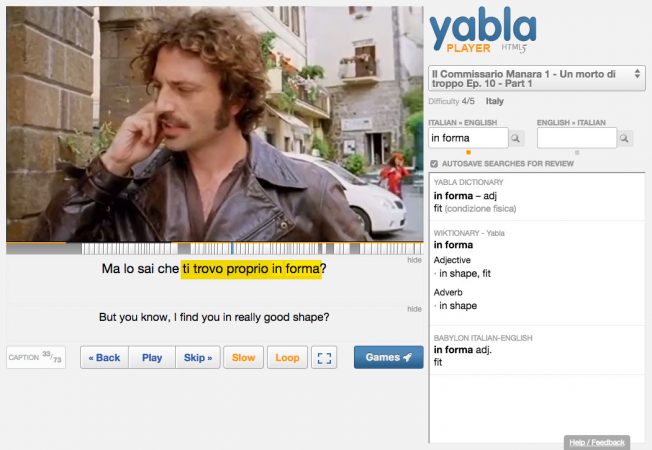Ciao a tutti!
Last week we discussed how to say that an outfit or an article of clothing looks good on you. This week, we’re going to take a little break from our study of phrases from Il Commissario Manara and pick up a very similar phrase from another Italian TV show on Yabla, Un Medico in Famiglia, because now we want to learn how to say that something fits.
First a quick recap:
Quel cappello ti sta proprio bene.
That hat really suits you well.
So if to say that an article of clothing looks good on you, we use stare, what do we say when we want to say it fits you? Here we get a little help from Alice who is letting her niece Maria borrow her shoes. She asks:
Ti vanno?
Do they fit you?
To which Maria responds:
Sono perfette, sembrano mie.
They’re perfect, they seem like they’re mine.
Wait, what? Yes, that’s right. When talking about clothes, Italian’s use andare to say that something fits! Here are some more examples:
Non mi vanno più queste scarpe.
These shoes don’t fit me anymore.
In realtà esiste una taglia che non va bene a nessuno.
Actually, there’s one size that fits no one.
Ma no, non mi va bene, è troppo stretto.
But no, it doesn’t fit me, it’s too tight.
I suoi vestiti hanno vent’anni, così non le vanno più bene.
Her clothes are twenty years old, so they don’t fit her anymore.
È di Mario Fabuli e mi va a pennello.
It’s a Mario Fabuli and it fits me like a glove.
A proposito:
un pennello: a paint brush
a pennello: perfectly, like a glove
So, you could say:
mi va a pennello: it fits me like it was painted on!
The best way to Learn? In context.
Now, as many of you know that you can also use andare to say you don’t feel like doing something or that things are or are not going well. So, how do you keep all the meanings of andare straight? You learn them in context. For this I recommend Reverso Context (iPhone, iPad, Android), which is currently by far one of the best tools for this purpose. Type in a short phrase, hit search and you will get a list of real sentences translated by real people. Not every sentence will be the context you are looking for, so you will have to read through them, but this tool will help you understand Italian better than any machine translator currently out there.
So how can you use this phrase right now in context?
Are you going through some of your children’s old clothes?
Questi vestiti sono vecchi. A mio figlio non vanno più. Li do in beneficenza.
These clothes are old. They don’t fit my son anymore. I’m giving them to charity.
Or did you throw something in the dryer that you shouldn’t have?
Questa camicia si è ristretta. Non mi va più.
This shirt shrunk. It doesn’t fit me anymore.
Or maybe you did what I did recently and ordered a pair of shoes online only to find that you ordered the wrong size:
Queste scarpe non mi vanno. Devo riportarle al negozio.
These shoes don’t fit me. I have to return them to the store.
So get out there! Try using this phrase in context all week. And post your ideas to our Facebook page.
Alla prossima!
Yabla Italian is an excellent tool to help you develop an ear for spoken Italian. (I use Yabla personally to study three different languages.) With Yabla Italian you will have:
- verbatim subtitles in Italian
- access to English subtitles when you need them
- the ability to turn the subtitles off as you improve
- quizzes to gauge how well you’re doing
And… this is especially useful… you can slow the video down! Yes! We all know how fast the Italians talk. You know a lot of the words. If you just had a little more time to process them…. Well, now you do!






